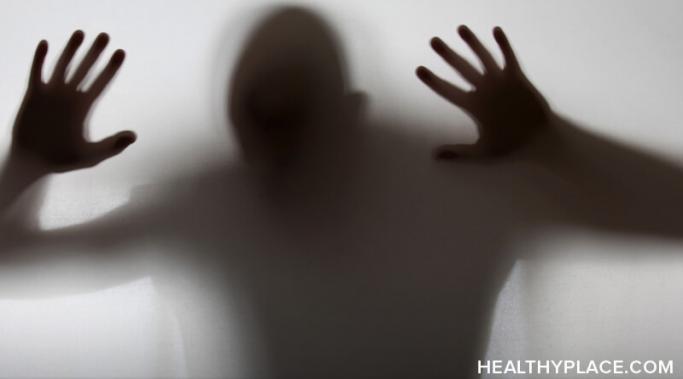Blogs
I’ve been writing about bipolar disorder and mental illness for nine years. Nine long years of pain and depression and episodes and hyperreality and desperation and description and explanation and exploration. And people still don’t get it. Even if you look at the past year – over 200 articles, there still seems to be nothing but a chasm between the mentally ill and so many of the mentally well.
And I think this is because language is insufficient to express emotional pain and turmoil. We have good words for describing physical pain: radiating, hot, throbbing, sharp, achy and so on. But when it comes to emotional pain we’re “sad.” The same word applies when you drop your ice cream cone on the ground as when you’re so depressed that you can’t get out of bed. It’s not surprising that people don’t get what we’re talking about.
Children in abusive homes often learn how to abuse without really knowing what they're doing. It's another tragic effect of abuse that can seem hopeless to overcome. But it isn't. Children in abusive homes aren't lost to us parents who have learned about abuse and can recognize abuse when it comes from our children. Granted, it's easier to teach children of abusive homes how to behave appropriately when they're no longer exposed to abuse. But, as that's not usually the case with family court being as it is, it's up to us non-abusive parents to teach children how to behave well. Here are some ideas on how to help children in abusive homes unlearn abuse.
I want you to consider this inspirational quote and how it plays into building your self-esteem.
Tell me how a person judges his or her self-esteem and I will tell you how that person operates at work, in love, in sex, in parenting, in every important aspect of existence - and how high he or she is likely to rise. The reputation you have with yourself - your self-esteem - is the single most important factor for a fulfilling life. ~Nathaniel Branden
S.
Whether you have a mental health diagnosis or not, life is difficult and stressful. Triggers, that can activate or increase your mental illness symptoms, are lurking everywhere. They can be family-related, work-related or health-related. That's why I'm a big proponent of engaging in behaviors that are preventive and proactive rather than reactive.
Let me preface this by saying that I’m a strong advocate of what is called “talk therapy”, whether conducted with a psychiatrist or psychologist. Today’s mental health care community likes to throw pills at problems because insurance companies prefer it that way – for obvious reasons - but real mental health recovery occurs over time as the result of a careful blend of professional guidance, pharmacology, and personal will, labor, and fearless commitment.
Talk therapy, when done properly, is the greatest emotional and spiritual adventure anyone could ever embark on. Compared to talk therapy, the much-discussed boating expedition of Columbus was simply a hop, skip and a splash down to the corner newsstand for a pack of smokes. But, it is dangerous and scary, and only works if the traveler is in the hands of a skilled guide.
PTSD (Post Traumatic Stress Disorder) is a common ailment that is often misdiagnosed. That's because the symptoms of PTSD are similar to many other mental health disorders listed in the DSM manual. These include but are not limited to ADHD, Bipolar Disorder, Anxiety Disorders, Adjustment Disorders, Depressive Disorders, Borderline Personality Disorder, OCD, and Oppositional Defiant Disorder. Surprised?
Recently, I received an email from a client's wife about baclofen and how it's being used to treat PTSD. She sent links withthe results of a study examining the efficacy of baclofen in PTSD treatment. While the research is compelling it made me think, "How can get we get these results without the drug?"
So I did a little sleuthing....
Sometimes, certain situations can cause a "trigger", or a flare-up of symptoms of borderline personality disorder (BPD). What can you do when you have to face a trigger?
Today is the day.
Today, I will report to the hospital for an assessment of my alcoholism. If there are no surprises, I will be admitted for a two-week stay. I will finally face my alcoholism in the hopes of getting it back into remission.
I have a good friend who has an expression that describes someone who you can truly trust. He says that if we were to jump out of an airplane would we trust that person to “pull the rip cord.” This is an interesting thought to ponder.








